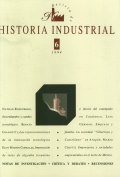Uncertainty and Technological Change
Abstract
There is now widespread agreement that technological change is a main determinant perhaps the main determinant- of long-term economic growth. In spite of this fact, the process that generates new technologies, and the uses to wich they are eventually put, are poorly understood. Economic theorists typically build models involving "rational" decisionmaking in which no uncertainties exist. These models are not very useful because uncertainty is the central aspect of technological change. This paper adopts an historical approach and argues that history can provide important insights into the causes and consequences of technological change, of a kind that are unlikely to be realized by model-building exercises alone.
Downloads
Downloads
How to Cite
Issue
Section
License
Copyright (c) 1994 Nathan RosenbergWe have been applying a Creative Commons Attribution license (CC-BY) since 2019, before that year we had a partial open access policy, which included open access for the first two months after publication, followed by an embargo policy for non-subscribers, as access to the last 4 published issues was restricted to journal subscribers. In contrast, early-view articles were always open access prior to publication in an assigned volume. Until 2024 the access to the last 4 published numbers was restricted to those who were subscripted to the journal.
The author assigns all rights to the publisher. Creative Commons
The author who publishes in this journal agrees to the following terms:
- The author assigns all intellectual property rights exclusively to the publisher for the entire duration of the applicable intellectual property rights. The University of Barcelona holds the copyright ownership of the contents published in the journal.
- The publisher will distribute the texts under the Creative Commons Attribution License, which allows others to share the work, provided that they acknowledge the authorship, its initial publication in this journal, and the conditions of the license.





